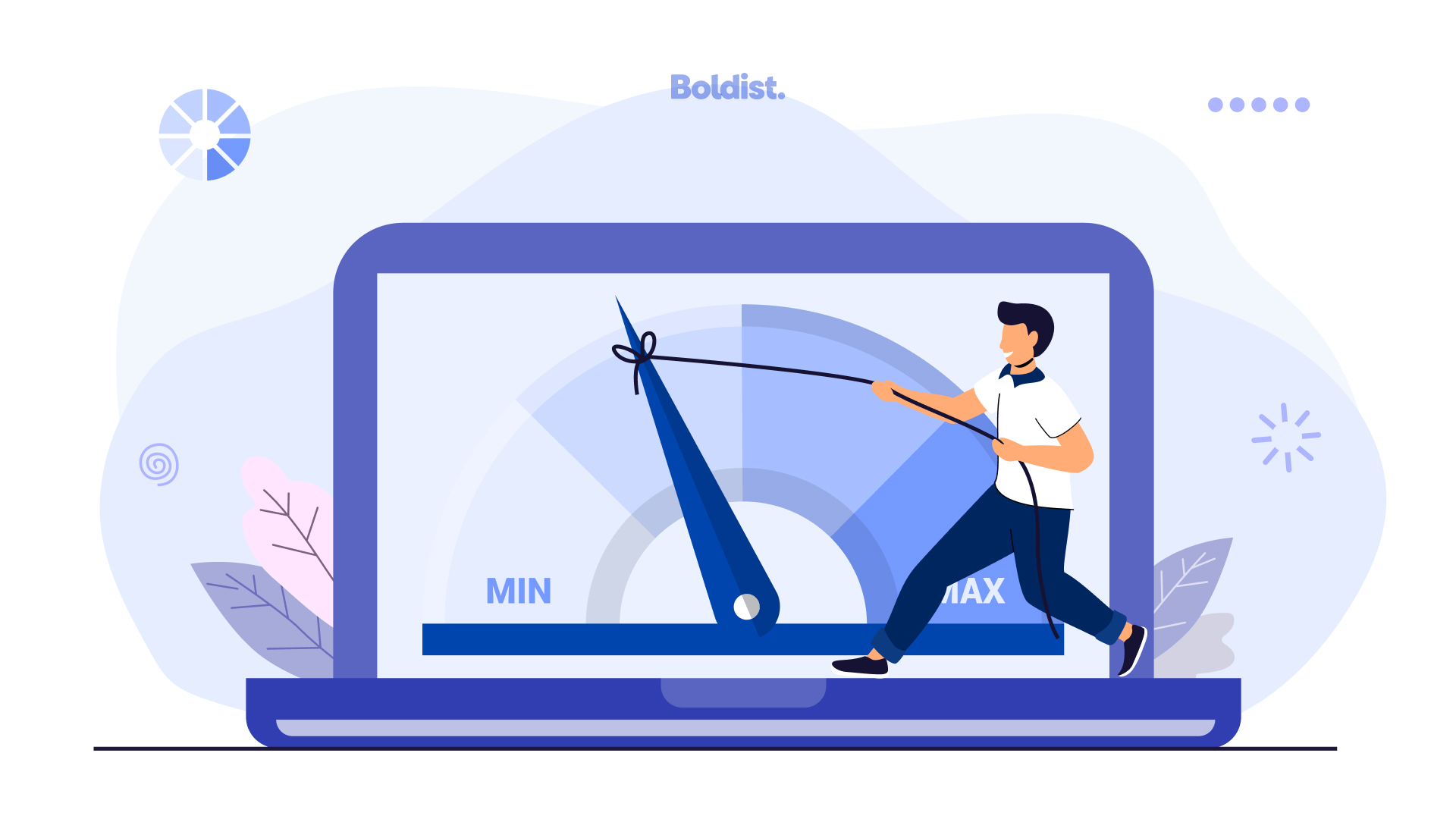Nobody likes a slow website, least of all your clients. You don’t have to be an ecommerce site for your website to be your most powerful branding and selling tool. Prospective and current clients, future hires, and your competitors are visiting your website, so you should make sure that your website looks good, has a client-focused user experience (UX) design, runs fast and efficiently, and points your users to valuable outcomes.
Don’t wait for a customer to tell you that your site is slow and difficult to use. You should actively monitor, improve, and stay on top of your site speed. You can run your website through speed tests, like Google’s PageSpeed Insights, to understand the metrics you should be optimizing, or you can work with website developers that know how to keep your website running smoothly.
Your site speed is important. It affects the overall UX of your website, impacting conversions, revenue, and customer experience in the most important place for your brand. So if you’re not actively improving your site speed, you’re leaving money on the table.
Ten Reasons Your Website Is Slow
1. Your scripts are slowing things down
Your Javascript and CSS files are too large. Your Javascript should also be minified, aggregated, and cached. Make sure you have only the necessary styling files you need for your website. CSS, the code responsible for the styling of your website, should be organized into as few files as possible – one file is optimal.
2. You aren’t caching properly
Caching is a way to store a version of your web pages on external servers or domains to make the loading time for pages quicker. This prevents users accessing your site from having to download every site asset on every page they load, making caching the most effective way to speed up your website.
3. You’re not using a CDN
A Content Delivery Network (CDN), such as Cloudflare, is a global network of servers that cache versions of your web pages so they can be accessed more quickly by website visitors that are far away from your main web server.
4. Your media files are too large
Have you uploaded videos and images with large file sizes? Run a compressor across your website to resize and compress media content and improve your loading speed. A plugin like Smush will compress your file sizes without reducing the asset quality. Make sure when you’re uploading these files that you’re saving them as optimized for web.
5. Your files aren’t hosted locally
You should host all of your own files, and minify as many files as you can. Another important trick is to favor screenshots over embedding social posts from other domains because embedding content from elsewhere will result in a hit to your speed.
6. Excess code is dragging you down
Your website may have excess code or scripts that are taking too long to load. You should work with a developer to determine what code is slowing you down and how to keep your code lean and efficient.
7. Your code is bulky
You don’t have excess code slowing things down, but your code is too bulky – ridden with extra characters and unnecessary spacing that need to be minified. There are WordPress plugins you can use to minify your code. Some plugins will even aggregate and cache your code to further speed up your website.
8. Plugins are causing problems
Not all plug-ins are created equal. Some weigh your site down while others cause caching issues that slow the loading speed of your whole site. For this reason, it’s best to use plug-ins as a last resort. A good rule of thumb is to make sure your plug-in is earning it’s installation by saving the developer time, energy and resources and that you’re not installing a plug-in just to solve one issue.
9. It’s on the user end
Site speed for your users will also depend on their network conditions. How stable is their internet connection? Are they on broadband, using an ethernet cable, or 5G? How close to their modem are they? There might also be instances of network congestion, but all these things are out of your control.
10. Make sure your systems and code are up to date and optimized
When trusting your website with an agency, choose one that will keep all your services, plug-ins and code up to date. A good website is about more than design; it’s about the technology that keeps it running smoothly and your business moving towards its goals.
How to Fix a Slow Website
If you notice that your site speed is lagging, or clients have pointed out that your site is slow, act on that information now. A slow website lowers your conversion rate, impacts your revenue, and can ruin your rankings in Google’s Search results page.
The solution is simple: Partner with a website development team that you trust to be on top of their game.
When you work with a web development agency, your website will always be primed for peak performance. Good web developers care about site speed and work hard to keep your website lean, optimized and up to date. They will continue to monitor and improve your site speed, and will regularly update the services and plug-ins that keep your site going.
You just have to take the first step.

